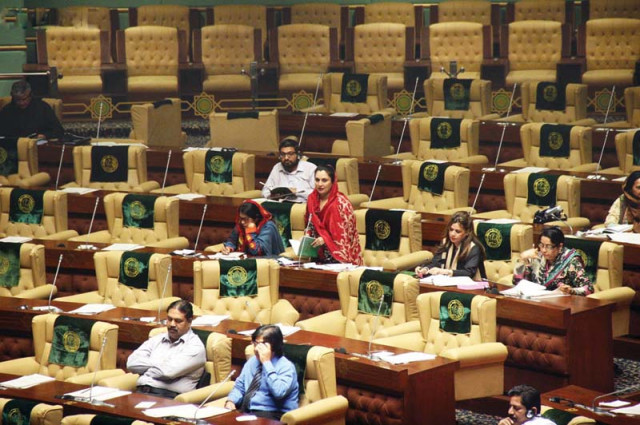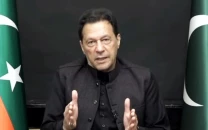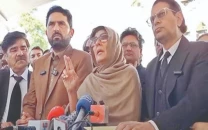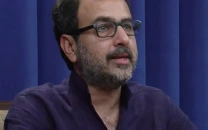Rs3. 45 trillion budget sails through provincial house
Also passes Rs156b supplementary budget for outgoing fiscal

The Sindh Assembly on Wednesday approved the Rs3.45 trillion budget for the fiscal year 2025-26 — a 12.9% increase from last year. It also passed a supplementary budget of Rs156.069 billion for the current fiscal year 2024-25.
Presenting the Sindh Finance Bill, Chief Minister Murad Ali Shah highlighted the government's reform initiatives, including digitisation of land records using blockchain, birth registration via mobile apps, farmers' access to loans through the Sindh Cooperative Bank, and the launch of a one-stop land transfer system.
The budget earmarks Rs43 billion for new ad-hoc relief allowances for government employees and Rs16 billion for a 15% pension increase.
A total of 188 demands for grants were presented, with the opposition submitting 2,002 cut motions, all of which were rejected by majority vote - except one joint motion against the special judicial allowance, which was unanimously passed by both opposition and treasury benches.
Key budget allocations include Rs42.2 billion for public universities, Rs10.4 billion for medical education, Rs5.2 billion for ambulance services under the Sindh Emergency Health Services, and Rs5 billion for the "Inclusive City" initiative for persons with disabilities.
Development expenditure has been set at Rs1,018.3 billion (30% of the total budget), with current revenue expenditure estimated at Rs2,150 billion. Salaries account for 39% of the budget, non-salary operations for 19%, and pensions for 13%.
The Sindh government expects to generate Rs3,111.5 billion in revenues during FY2025-26 - a 21.4% increase from the revised estimates of the previous year. Over the next three years, the province anticipates an average annual revenue growth of 12.5%. If the Federal Board of Revenue (FBR) achieves its Rs14.131 trillion target, Sindh is likely to receive Rs269 billion in federal transfers.
The CM also outlined key developmental priorities including, Rs8 billion for Benazir Hari Card (agricultural subsidies); Rs1.8 billion for livestock breeding; subsidies for solar-powered tube wells and drip irrigation; Rs2 billion for low-income housing; Rs2 billion for the Sindh Peoples Support Programme; Rs200 million for orphans and widows, and Rs500 million per project to empower women in agriculture and SMEs
In health, allocations include Rs4.5 billion for an SIUT center in Larkana, Rs21 billion for SIUT, Rs23 billion for NICVD, Rs16.5 billion for PPHI, and Rs10 billion for a new hospital in Larkana.
Another Rs10 billion have been allocated for the Dhabeji-DHA water pipeline and Rs3.1 billion for the Hub Canal. Rs25 billion is earmarked for green energy, and Rs45 billion for SDG-aligned public health projects.
























COMMENTS
Comments are moderated and generally will be posted if they are on-topic and not abusive.
For more information, please see our Comments FAQ